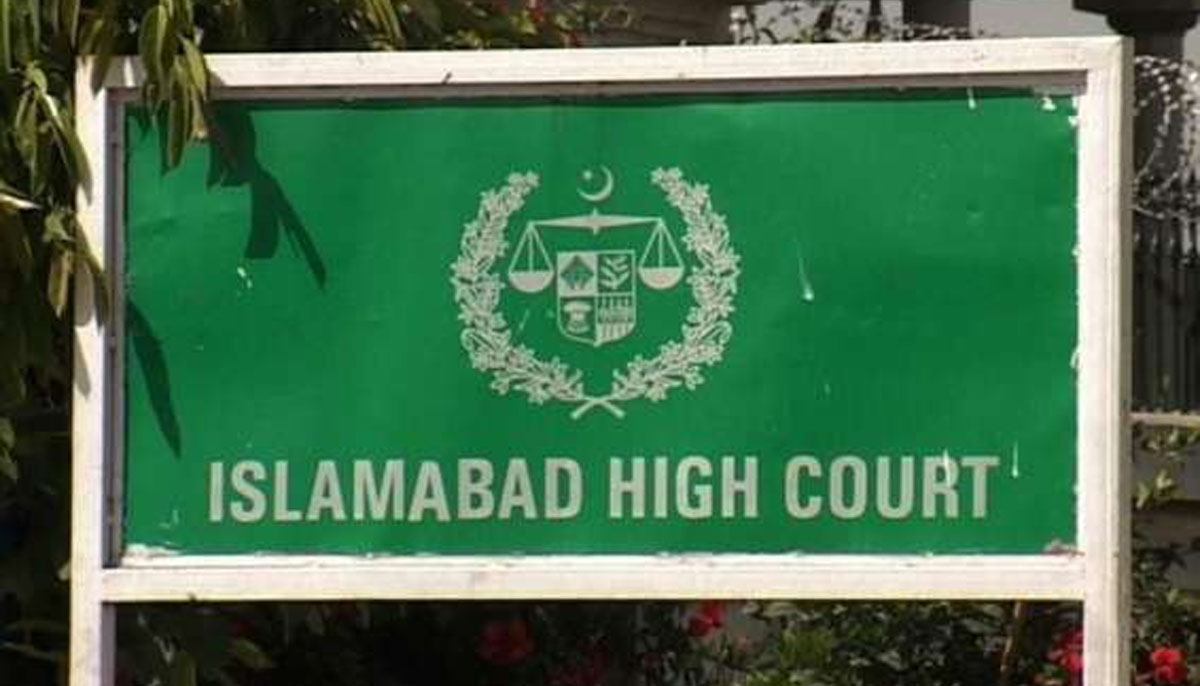Advisers cannot act as ministers, IHC rules
ISLAMABAD: Appointing an adviser with the status of a minister does not empower the said adviser to act as a minister, notes a recent order passed by the Islamabad High Court (IHC).
This week, the IHC had heard a petition challenging the appointment of Mirza Shahzad Akbar as adviser and chairman of the Assets Recovery Unit. The petitioner claimed that Akbar was “illegally exercising executive powers” and was allegedly “influencing the National Accountability Bureau (NAB) and other investigating agencies.
While disposing of the case, since the petitioner did not place on record any material to support that Akbar may have interfered with matters falling within the domain of the NAB, the IHC noted that a ‘minister’ is defined under clause (xiii) of rule 2 and it neither includes an ‘adviser’ nor a ‘special assistant’.
“The Rules of 1973 explicitly declare the secretary to be the official head of the division/ministry and responsible for its efficient administration, discipline and proper conduct of business,” reads the judgment.
The president is empowered under the constitution to appoint, on the advice of the prime minister, not more than five advisers. The adviser has the right to speak and take part in parliamentary proceedings, but cannot vote.
Separately, the prime minister is also empowered to appoint a special assistant, but the special assistant in a ministry is “not one of its officials”, the court observed. “An adviser has no role either in policy matters of a ministry nor its execution.”
The court also added that Rule 55 of the Rules of 1973 prescribes guidelines for the communication of official information.
“Rule 55(4) provides that only ministers and secretaries shall act as official spokespersons of the government. The aforementioned rule would be breached if an adviser or an authority not specified therein is authorized to act as an official spokesperson,” the order read.
-
 Celine Dion Reveals Music She's Listening To Lately
Celine Dion Reveals Music She's Listening To Lately -
 HR Exec Kristin Cabot To Speak At Crisis PR Conference After Coldplay Incident
HR Exec Kristin Cabot To Speak At Crisis PR Conference After Coldplay Incident -
 Why Travis Kelce Says Taylor Swift Has Made Him 'so Much Better'?
Why Travis Kelce Says Taylor Swift Has Made Him 'so Much Better'? -
 Halle Berry Credits This Hairstyle With Launching Her Acting Career
Halle Berry Credits This Hairstyle With Launching Her Acting Career -
 Hailee Steinfeld Spills Her 'no-phone' Rule With Husband Josh Allen
Hailee Steinfeld Spills Her 'no-phone' Rule With Husband Josh Allen -
 Bowen Yang Gets Honest About Post SNL Life: 'It’s An Adjustment'
Bowen Yang Gets Honest About Post SNL Life: 'It’s An Adjustment' -
 Charlize Theron Delivers Strong Message At 2026 Winter Olympics Opening Ceremony
Charlize Theron Delivers Strong Message At 2026 Winter Olympics Opening Ceremony -
 Lil Jon Reacts To Son Nathan Smith's Death: 'Devastated'
Lil Jon Reacts To Son Nathan Smith's Death: 'Devastated' -
 Bianca Censori Reveals Where She And Kanye West Stand On Having Children Together
Bianca Censori Reveals Where She And Kanye West Stand On Having Children Together -
 Taylor Swift Hypes Olympic Athletes In Surprise Video Message
Taylor Swift Hypes Olympic Athletes In Surprise Video Message -
 Timothy Busfield Charged With Four Counts Of Child Sexual Abuse
Timothy Busfield Charged With Four Counts Of Child Sexual Abuse -
 Amy Schumer Explains Why Her Sudden Photo Surge Is ‘not A Cry For Help’
Amy Schumer Explains Why Her Sudden Photo Surge Is ‘not A Cry For Help’ -
 Kanye West First Contacted Bianca Censori While In Marriage To Kim Kardashian?
Kanye West First Contacted Bianca Censori While In Marriage To Kim Kardashian? -
 Travis Kelce Reveals What His Nieces Really Do When He, Taylor Swift Visit
Travis Kelce Reveals What His Nieces Really Do When He, Taylor Swift Visit -
 Lola Young Makes Career Announcement After Stepping Back From Touring
Lola Young Makes Career Announcement After Stepping Back From Touring -
 Priyanka Chopra Shares Heartfelt Message For Nick Jonas
Priyanka Chopra Shares Heartfelt Message For Nick Jonas




